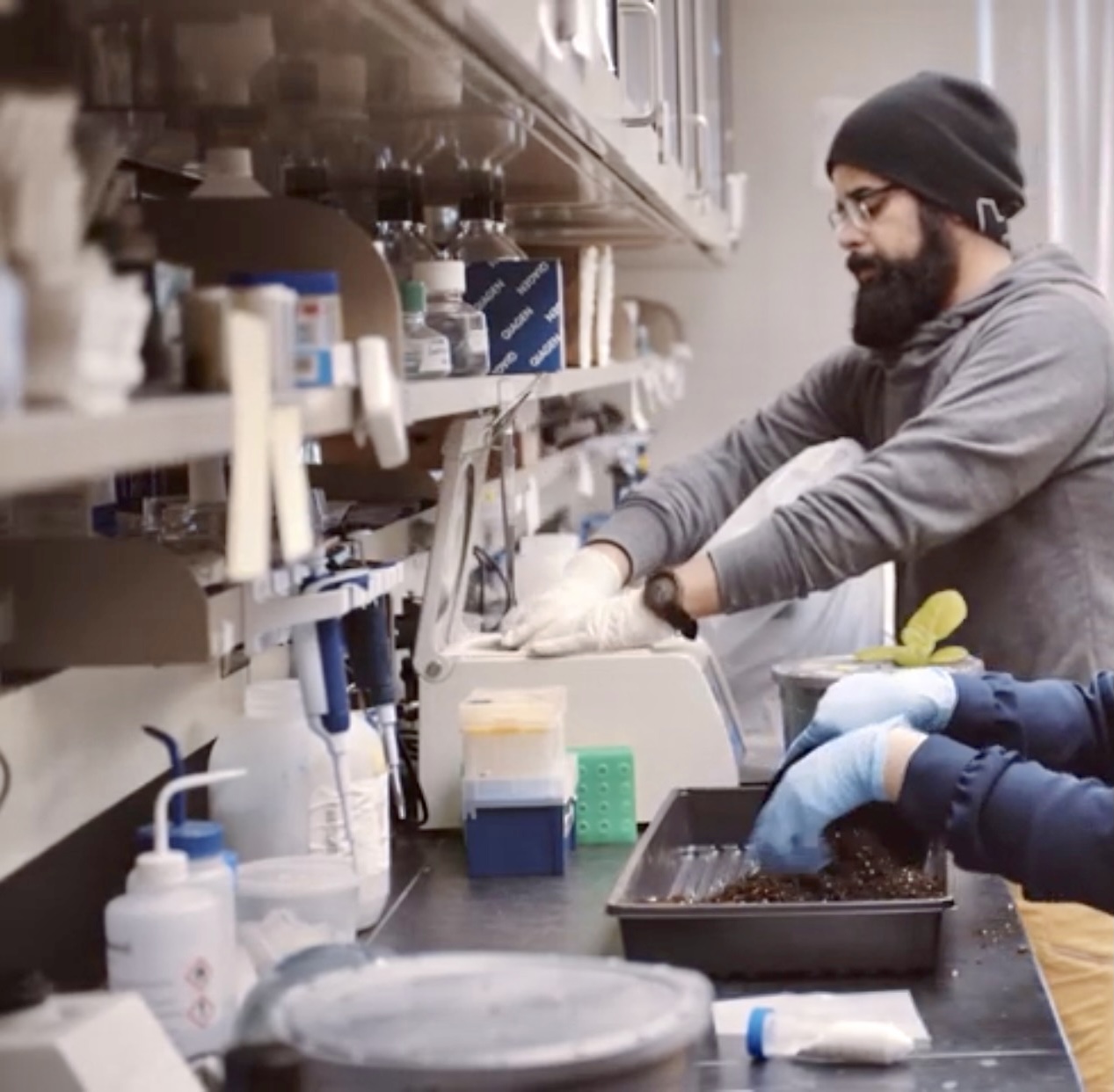When Roberto M. Alers-Velazquez was researching graduate schools in 2015, he had a checklist.
He wanted to develop relationships with professors and to do important research in biology. And since he was going to be spending the next few years of his life in whichever city he chose, the native of Puerto Rico also wanted a place he could enjoy himself.
The University of Toledo checked all of his boxes.

CELEBRATING SUCCESS: During this time when we cannot come together to celebrate our graduates, UToledo is recognizing the Class of 2020 with a series of feature stories on students who are receiving their degrees during our virtual commencement ceremony Sunday, Dec. 6.
“It 100% lived up to my list,” he said.
Alers-Velazquez will graduate from The University of Toledo in December with his Ph.D. in molecular biology and start his post-doctoral studies at Dartmouth College in Hanover, N.H., in January.
Science and research have always been his passions. Alers-Velazquez earned his bachelor’s degree in biomedical sciences at the University of Puerto Rico and did his post-baccalaureate studies at Ohio State University.
While at OSU, he collaborated with Dr. John Gray, a UToledo biology professor. He told Gray of his interest in virology, and Gray recommended he look into Dr. Scott Leisner’s research in plant virology at UToledo. He encouraged Alers-Velazquez to apply to UToledo’s Ph.D. program.
It was a perfect match.
“I couldn’t have picked a better advisor,” Alers-Velazquez said. “Dr. Leisner didn’t only provide me tools and an environment to learn, he answered my questions and gave me the flexibility to learn by myself.”
Alers-Velazquez said he believes his independence was one of the traits that impressed the interviewing team at Dartmouth.
When Alers-Velazquez began his Ph.D. work in Leisner’s laboratory, he had no training in the area of plant virology or experience with fluorescence microscopy. He didn’t let that stop him, Leisner said.
“He excelled during his graduate training in both areas,” Leisner said. “He also learned a great deal of fluorescence microscopy, including sophisticated image analysis techniques, some employing software that did not exist before last year. He learned these techniques mainly on his own.”
One of Alers-Velazquez’s research projects involved studying the Cauliflower mosaic virus, which afflicts plants. The only way to fight the virus is to destroy the crop or isolate it, Alers-Velazquez said.
He experimented with thermal therapy ― applying high or low temperatures to the plants. He discovered that if you treat the plants with low temperatures, you can delay the infection.
While not a cure, it does “open the door to different ways of managing disease in these crops,” Alers-Velazquez said.
Finishing his research was a true test for Alers-Velazquez. Like the rest of Ohioans, his life — and his research — were put on hold when the COVID-19 lockdown went into effect. He was finally able to get back into the lab last summer.
“My anxiety was at an all-time high,” he said. “My research depends on plants. It was exhausting to grow and maintain the plants and make sure they were healthy so that I could finish my research, submit my paper and be approved for graduation. I had to remind myself it was going to work out.”
It has. Alers-Velazquez published his findings in the journal Virology and submitted another paper as well.
“This work has led to a deeper understanding of plant virus propagation and to new research directions for the lab,” Leisner said.

Roberto M. Alers-Velazquez graduates from UToledo in December with his Ph.D. in molecular biology and starts his post-doctoral studies at Dartmouth College in Hanover, N.H., in January.
Alers-Velazquez’s work at UToledo extended well beyond his research. He mentored other students and organized a “Careers in Science” symposium.
When he came to UToledo, Alers-Velazquez was the only Latino graduate student in the biology department. He wanted to beef up the recruitment of underrepresented minorities with a passion for STEM and ensure they had the same opportunities he did.
He talked to chairs, deans, professors — whomever would listen — about the need for a more diverse applicant pool and UToledo having a presence at STEM conferences for underrepresented students. He found a receptive audience.
A year ago, the department formed a diversity committee, and Alers-Velazquez is one of its members.
“I made it my mission to not only do my graduate studies but to contribute, to leave UToledo better than I found it,” Alers-Velazquez said.
And he has. The Department of Biological Sciences now has three Latino graduate students, who, just like Alers-Velazquez, have found a home in the department, and in Toledo.
When he first got to town five years ago, Alers-Velazquez went downtown for a Mud Hens game and a Tony Packo’s hotdog. He attended all the Rocket football games. He also found his academic fit, reveling in the personalized teaching and small classes at UToledo.
“I can always knock on someone’s door if I don’t understand. Everyone here is willing to teach,” he said. “I wouldn’t be where I am without all of my professors.”